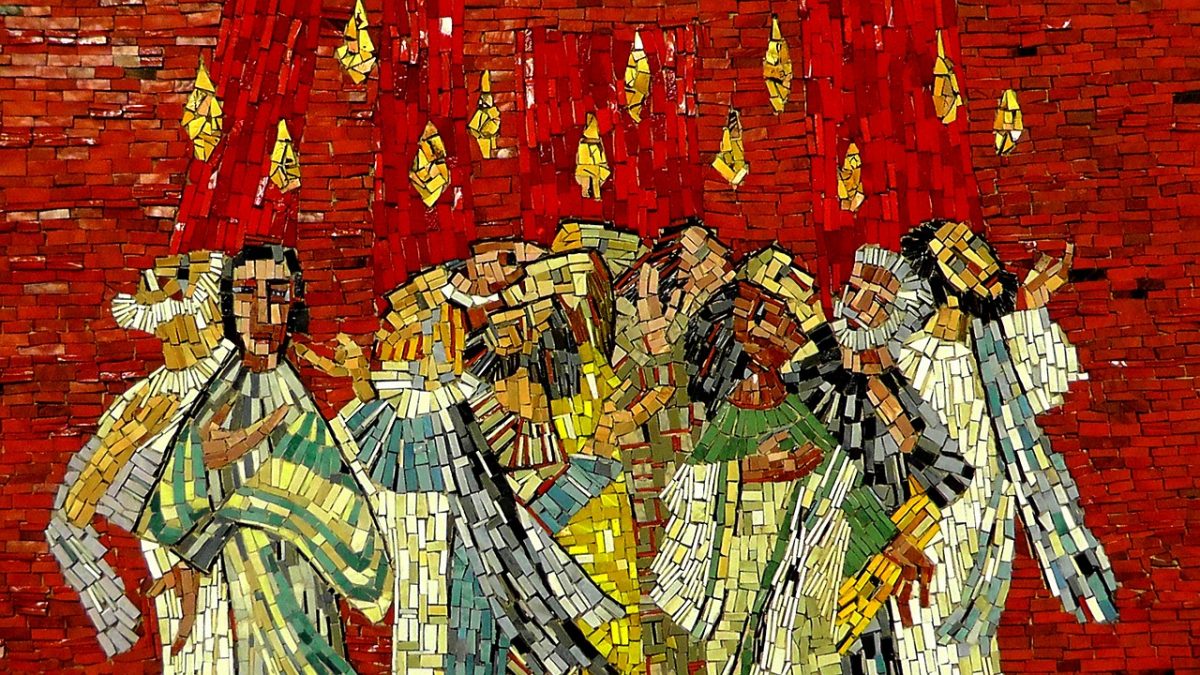The Church is in the midst of Eastertide. Having celebrated and commemorated the events of Jesus’ birth, life, death, resurrection, our minds go to that
In the gospel of John, one of the works of the Spirit that is highlighted repeatedly is that of remembrance. The Holy Spirit works in us to bring to our memory the person of Jesus, His life, words, and works.
Jesus speaks of this work of the Spirit in the Farewell Discourse. In chapter 14 (the Gospel lesson for this coming Sunday in the RCL), He assures His disciples that He will send the Helper, the Spirit of truth. The Spirit, He says, will dwell in them and will open their eyes by bringing the words of Jesus to their memory:
But the Helper, the Holy Spirit, whom the Father will send in my name, he will teach you all things and bring to remembrance all that I have said to you. (John 14.26)
Following this, Jesus tells the disciples later, in chapter 16, that this remembrance is instructive. The Spirit guides the disciples into truth they are not yet ready to receive:
I still have many things to say to you, but you cannot bear them now. When the Spirit of truth comes, He will guide you into all the truth, for He will not speak on His own authority, but whatever He hears He will speak…” (John 16.12-13)
Interpretive Memory
The Spirit comes to bring to memory the person of Christ in the life of the disciples, but this remembering is not merely a recollection of facts. The Spirit brings the events, words, and person of Christ to disciples in a new light. The Spirit guides the Church to interpret the words of Christ in a way that she otherwise could not. Oscar Cullmann, 20th century Lutheran theologian, is helpful here:
“This ‘remembering’ is not merely a remembering of the material facts, it includes alongside of this that understanding of the facts which is first granted by the Holy Spirit. Thanks to this special remembering in the Holy Spirit the evangelist also understands for the first time the connexion in the history of salvation of the life of Jesus with the Old Testament.
Early Christian Worship, p. 49.
So the “remembrance” given by the Spirit is a hermeneutical principle, the guiding light by which the Scriptures are rightly read and preached. Spiritual remembrance is epistemological; that is, to remember by the Spirit is to truly know. A couple of examples in John’s gospel will help us see this.
John points out repeatedly that the disciples’ understanding of Jesus’ words and actions was incomplete during the earthly life of Christ. It is only after the death and resurrection of Christ, and the giving of the Spirit, that they know the truth of Jesus words and actions. In John 2, Jesus speaks of the coming destruction of the Temple. The Jerusalem Temple will be destroyed, of course, but Jesus’ body is the temple that will be destroyed and will rise again in three days. “When therefore He was raised from the dead, His disciples remembered that He had said this, and they believed the Scripture and the word that Jesus had spoken.” (v. 22)
Again, in the events leading up the Crucifixion, John highlights the deficiency in the disciples’ understanding prior the the Spirit’s enlightening. Concerning the Triumphal Entry John says, “His disciples did not understand these things at first, but when Jesus was glorified, then they remembered that these things had been written about Him and what had been done to Him.” (v. 16) The “these things” they remembered, the things written about Him, refers to Israel’s Scripture. They had not forgotten these passages, but now, by the Spirit and in light of the Resurrection, truly knew the meaning of Scripture. Again, in chapter 13, Jesus tells Peter that when washing his feet that though he does not now understand what Jesus is doing, His eyes will be opened after the events of Jesus’ Cross and Resurrection (v. 7).
Memory and Action
The Spirit continues this work of granting interpretive memory to us, so we can continually learn to see Jesus in the Scriptures afresh. He continues to open our eyes to wonders in God’s Word (Ps. 119:18). But this memory is for more than the sake of “aha” Bible-reading moments; Spiritual memory calls us to action.
Martin Luther was fond of calling himself and his parishioners to “remember your baptism!” Remembrance of Christ and His work includes understanding and remembering who He has made you, and what implications that has on you. The apostle Paul would remind us that “as many of you as have been baptized into Christ have put on Christ,” (Gal. 3:27); that we are buried with Him in baptism and raised with Him to walk in newness of life (Rom. 6:4).
Remember! Follow the Spirit as He opens your eyes to see the glory of Christ in the Word. And as you see Jesus, remember who you are: a baptized child of God!
















